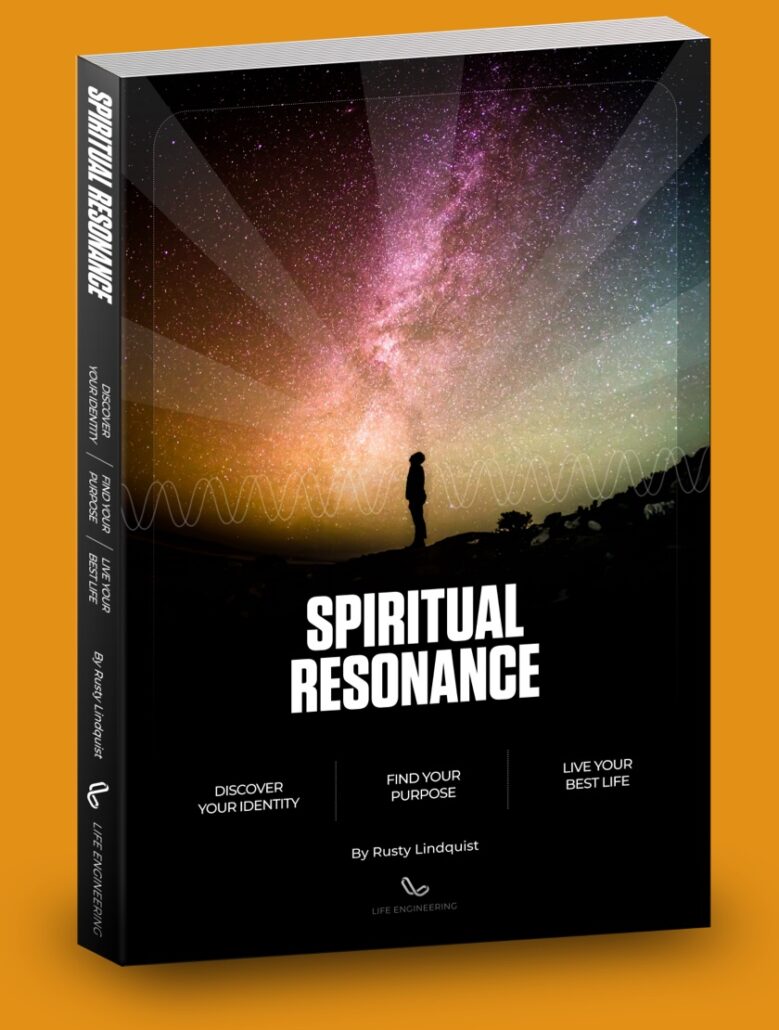Free Course: Alignment Staying on Course Free Course: Alignment From our 16 Elements series, and a part of the Act Pillar, Alignment …
KEN ROBINSON: THE IMPORTANCE OF CREATIVITY
articles
In 2006, Sir Ken Robinson gave an unforgettable talk at TED about how to develop children’s natural capacity for creativity and imagination, and how the design of our current public school systems is working to kill that creativity.
Here is the video of the talk, with a text transcript of the main points below (in case you’re at work, or on a lower bandwidth connection). I highly recommend the video to get the full force of his presentation.
(Rough text transcript, at least the main points)
1. There’s extraordinary evidence of human creativity.
2. We have no idea of what’s going to happen in the future.
We have a huge interest in education, partly because we’re relying on it to take us into a future that we cannot predict. Children starting school this year (2010), will be retiring around 2075. Nobody has a clue what the world will look like in five year’s time, let alone in 12 years, when these kids are graduating from high school, or 16 years if they go to college.
We have no idea what that future will bring, we have no clue, and yet we’re supposed to be preparing them for that.
Children have extraordinary capacities for innovation.
All kids have extensive creative capacity, and we squander it, quite ruthlessly.
Creativity now is as important in education as literacy, and we should treat it with the same status.
He tells a story of a little girl in class in a drawing lesson, who rarely paid attention, but she was really into what she was drawing. So the teacher went over and asked, “What are you drawing?” And the little girl said “God.” The teacher said, “But nobody knows what God looks like,” and the little girl said, “Well, they will in a minute.”
Then he tells the story of his son in the Nativity play. He was playing Joseph. At the part where the three kings come in to offer their gifts, they unintentionally went out of order. The first child came forward and said, “I bring you gold.” The second said, “I bring you myrrh.” Then the third child came forward and said, “Frank sent this.”
The point is that kids will take a chance. If they don’t know, they’ll have a go. They’re not frightened of being wrong.
If you’re not prepared to be wrong, you will never come up with anything original.
By the time they get to be adults, most kids have lost that capacity. They have become frightened of being wrong. We run our companies like this; we stigmatize mistakes. We’re now running national education systems where mistakes are the worst thing you can make. The result is that we are educating people OUT of their creative capacities.
Picasso once said that all children are born artists. The problem is to remain an artist as we grow up.
We don’t grow into creativity, we grow out of it. Or rather, we get educated out of it.
Think of Shakespeare. He was in somebody’s English class at some point. How annoying would that be? “Must try harder.” Think of being his dad… “Now go to bed… and put that pencil down.. and stop speaking like that… it’s confusing everybody.”
Every education system on the earth has the same hierarchy of subjects. At the top are mathematics and languages, then the humanities, and at the bottom are the arts. Everywhere on earth.
And in pretty much every instance, there’s a hierarchy within the arts. Art and music, then drama and dance.
As children grow up we begin to educate them from the waist up. And then we focus on their heads, and slightly to one side.
If you looked at education as an alien, and simply looked at what the output was, who gets all the brownie points, you’d have to conclude that the whole purpose is to produce university professors (I used to be one).
There’s something curious about professors, they live in their heads, they live up there, and slightly to one side. They’re disembodied. They look at their bodies as a form of transport for their heads.
It’s the way they get their heads to meetings.
Our education system is predicated on the idea of academic ability. The whole system was invented after the 19th century to accommodate the needs of industrialism. The whole thing is built upon two ideas:
1. The most useful subjects for work are at the top. So you were probably steered away from things you liked as a kid, on the grounds that you would never get a job doing that.
Don’t do music, you’re not going to be a musician. Don’t do art, you’re not going to be an artist. Benign advice. Now, profoundly mistaken.
2. Academic ability, which has really come to dominate our view of intelligence because the universities designed the system in their image.
If you think of it, the whole system around the world is a protracted process of university entrance. And the consequence is that many highly talented, brilliant, creative people think they’re not. Because the thing they were good at at school wasn’t valued or was actually stigmatized.
We can’t afford to go on that way.
In the next 30 years, according to UNESCO, more people worldwide will be graduating from education than since the beginning of history. It’s the combination of technology (and its transformative effect on work) and demography (the huge explosion of population).
Suddenly, degrees aren’t worth anything. When I was a student, if you had a degree, you had a job, and if you didn’t have a job, you didn’t want one. But now kids are graduating and going back home to play video games. Because now you need an MA, whereas before you needed a BA, and soon you’ll need a PhD.
It’s a process of academic inflation. The whole structure of education is shifting beneath our feet.
We need to radically rethink our view of intelligence.
We know three things about intelligence:
1. It’s diverse. We think about the world in all the ways we experience. We think visually, we think in sound, we think kinesthetically. We think in abstract terms, we think in movement.
2. It’s dynamic. If you look at the interaction of the human brain, intelligence is wonderfully interactive. Creativity, more often than not, comes about through the interaction of different disciplinary ways of seeing things.
Corpus callosum are the nerves that connect the two halves of the brain. It’s thicker in women. Perhaps that’s why women are better at multitasking.
3. It’s distinct.
He had lunch with Gillian Lynn, a choreographer who did Cats and Phantom of the Opera. He asked, “How’d you get to be a dancer?” She said, “When I was in school in the ‘30s, I was really hopeless.” The school wrote to her parents and said she had a learning disorder.
Probably now they’d say she had ADHD. But this was the ‘30s and it hadn’t been invented. It wasn’t an available condition. People weren’t aware they could have that.
She went to see a specialist in an oak paneled room, and she sat on her hands while this man talked to her mother about all the problems Gillian was having at school. And at the end of it (she was 8), the doctor went and sat next to her, and said, “I’ve listened to all the things that your mother has told me, and I need to speak with her privately. We’ll be right back.”
As he went out the room, he turned on the radio that was sitting on his desk. When they got out of the room, he said, “just watch her.” As soon as they left, she was on her feet, moving to the music. He said to her mother, “Mrs, Lynn, Gillian isn’t sick, she’s a dancer. Take her to a dance school.”
She did. “I went to this room, and it was full of people like me. People who couldn’t sit still, people who had to move to think. They did ballet, tap, jazz, everything.”
She had a wonderful career at The Royal Ballet, graduated, founded her own company, met Andrew Lloyd Webber, and has been responsible for some of the most amazing ballets in history. She has given pleasure to millions; and she’s a multi-millionaire.
Someone else might have put her on medication and told her to calm down.
I think our only hope for the future is to adopt a new perception of human ecology—one in which we start to reconstitute our perception of the richness of human capacity. Our education system has mined our minds, in the way we strip mine the earth for a particular commodity. That won’t serve us for the future. WE have to rethink the fundamental principles on which we’re educating our children.
The only way we’ll do it is by seeing our creative capacities for the richness they are, seeing our children for the hope that they are, and educating their whole being so they can face the future that we may not even see. But they will, and our job is to help prepare them to make something of it.
I certainly think Ken makes a strong argument. I believe much of what he talks about is why (according to Gallup) some 50% of employees are not engaged in their work today, costing the nation around $300 billion in lost productivity, and why so many are unfulfilled with their career paths (more on this post). It’s a decoupling of their pursuits from their passions. They never found their sweet spot and ended up pursuing something that they were assured could pay the bills, rather than something they were truly passionate about.
If this is you, click here for a series of posts that will help you learn how to get back on track, to find fulfillment in life and in work, and to chart a trajectory towards a career that you love.
-Rusty
P.S. For more on this, see “Waiting for Superman premieres this week”
See also Ken’s personal website to learn more about him and discover his books.
Note: Thank you for being here. Remember, you matter, and you can make a difference. Please share this post with someone else, and come back for more.
Share this
with someone who might need it
keep reading
The turkey effect How to learn who you are and live your best life raising turkeys People often wonder “who am I?”; …
HOT HANDS HOW identity POWERS PEAK PERSONAL PERFORMANCE HOT HANDS There’s a well-known phenomenon in sports called “Hot Hands.” It’s the idea …
Know Thyself The Key to Unlocking Your Full Potential Know thyself Nestled deeply on the slopes of Mount Parnassus in Greece is …
Employee satisfaction is closely tied to performance. When satisfaction levels rise, productivity, customer service, and profits tend to rise too. Employee turnover slows down and it becomes easier to recruit new talent. See how your team, leadership, and shareholders can benefit from a company culture that emphasizes employee satisfaction.
If you want your customers to be happy, you need to think about employee satisfaction. When employees like their workplaces, they are more effective at their jobs and provide better customer service. Learn more about the link between the employee and customer experience and how to measure employee satisfaction.








Responses